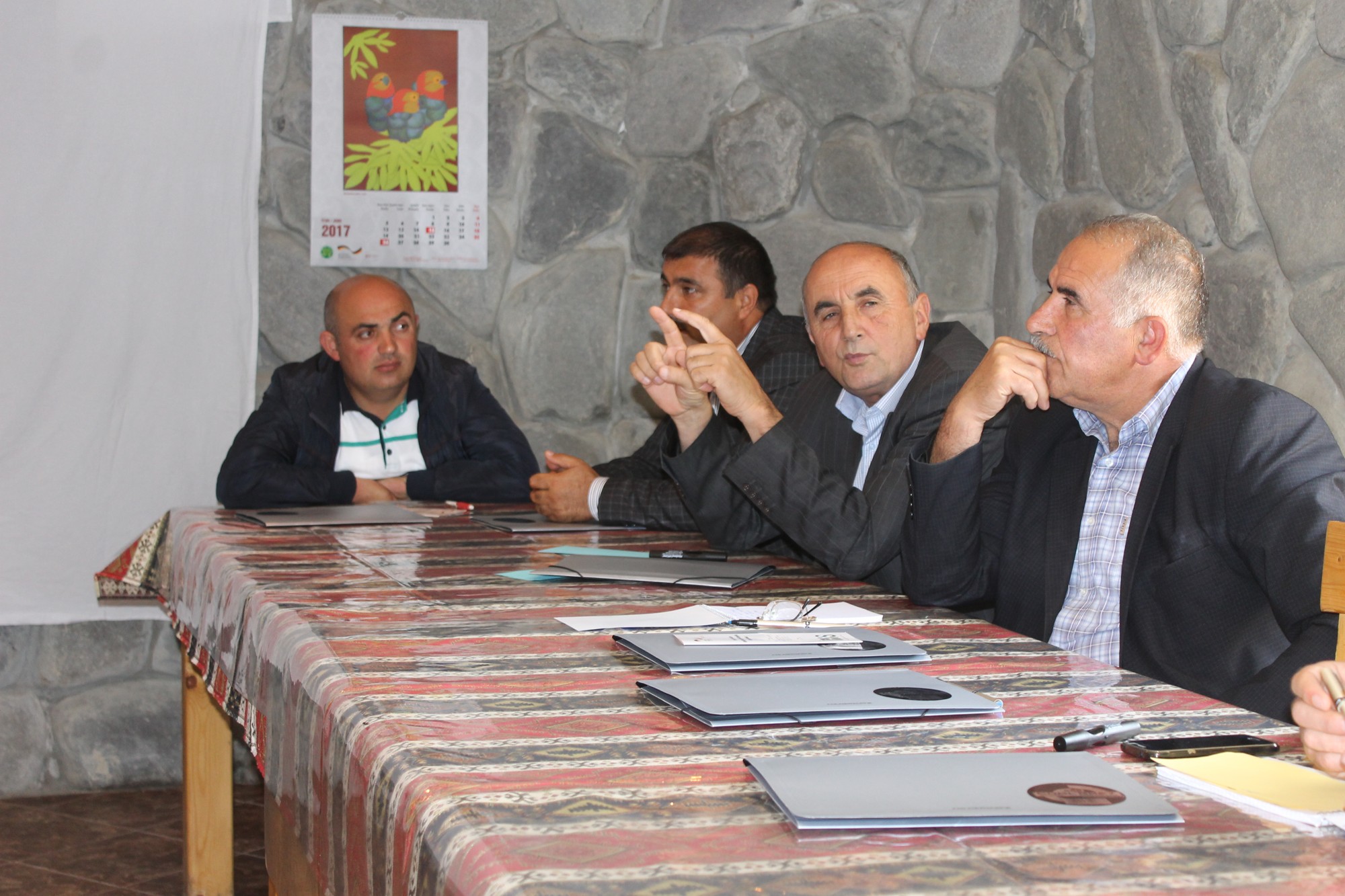

To support the participatory approach and achieve sustainable outcomes, local capacities are continuously developed. Therefore, international and local experts have been invited to train local communities on implementing and maintaining erosion control measures, e.g.: afforestation, maintenance of tree nurseries, orchard management or beekeeping. Local and regional meetings among communities are used to promote activities and enhance knowledge exchange. Trainings on integrating ecosystem services into development planning are also provided to local authorities and representatives of partners.
To enable national and regional exchange, an erosion control handbook that reflects showcases of implemented ECM in pilot regions was developed and will be distributed among relevant ministries, research and training institutions, NGOs, construction companies and experts.
- Decision makers are aware of erosion processes and future negative impacts
- Local communities trust the programme and are motivated to participate in the implementation process
- Capacity building agenda of the programme fits with (development) agenda of district administration and municipalities
- Organize hands-on trainings in the field rather than in class.
- On the job trainings and learning by doing make complex topics accessible
- Translate the trainings into the reality of local communities (e.g. with tangible examples)
- Respect local knowledge and practice in erosion control
- Incorporate local and traditional knowledge into the trainings and reflect possible enhancements of applied measures
- Exchange with other international institutions that deal with similar topics
- Be sensitive to upcoming conflicts of interests during trainings and exchanges between stakeholders and partners
- Ensure involvement of all relevant stakeholders in capacity building